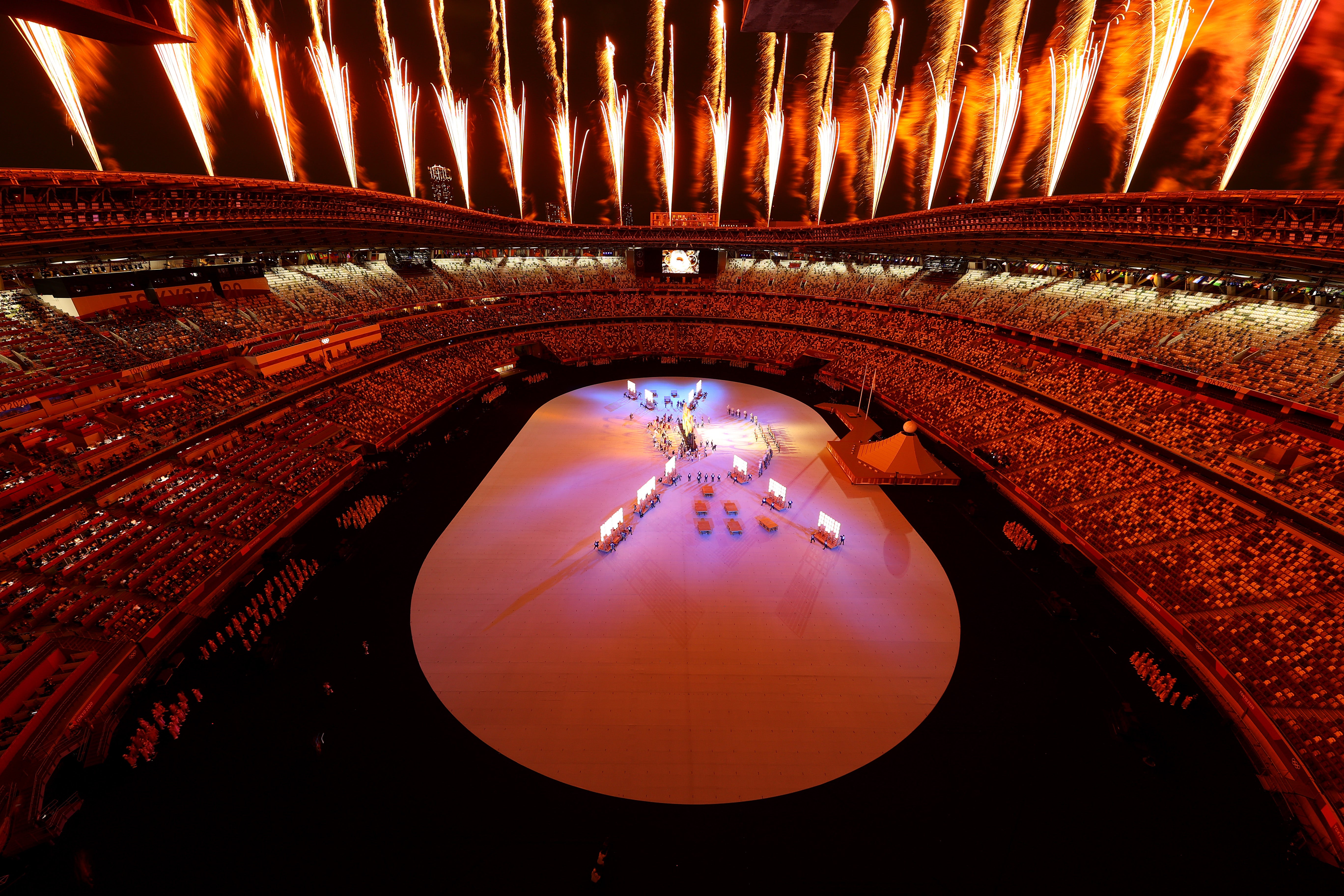Tokyo 2020 Olympics: Sports stars can rewrite ‘Covid games’ narrative now torturous build-up is over
The build-up has been more Fyre Festival than sporting festival but after the opening ceremony the world’s greatest athletes can finally take to their stage and put on a show

As fireworks twinkled over the Olympic Stadium with its opening ceremony in full flow, it was understandable if what came to mind was not the usual sense of anticipation before a games, the tingle of excitement at the thought of all those medals to be valiantly won and heartachingly lost, but instead that the high point of Tokyo 2020 might be when the last light of the closing ceremony goes out.
It is already inevitable that these will be remembered as the Covid games: masked and sanitised, played out in hollow arenas bereft of the rich crowds that make the Olympics a uniquely uplifting sporting experience. Coronavirus has crept to Japan on economy class and emerged in the Olympic Village, and at best Covid will spend the next two weeks loitering menacingly in the background. It is also distinctly possible more and more racing lanes will lie empty.
It is not just the pandemic which has dampened the mood. Just about every PR disaster imaginable has come to pass. One Japanese newspaper ran a list of embarrassing episodes like a medals table: high-ranking staff caught being sexist, racist and bullying. Sackings and resignations. Concerns over Tokyo Bay’s water quality, Fukushima’s nuclear disaster zone and the suffocating heat. Right now it feels less like a festival of sport and more like sport’s very own Fyre Festival.
Still, what is it they say: under promise and over deliver. When the sport finally gets into full swing it will hog the spotlight, and this Olympics truly has an array of sporting excellence to enjoy: think of the pride of Naomi Osaka, the inevitability of Adam Peaty, the sheer aura of Simone Biles.
So much has changed since Rio. Five years have passed and those extra 12 months have only increased the athlete churn to the point where there is an entire new generation of sporting stars ready to explode into the global consciousness. Most won’t have heard of Trayvon Bromell, the fastest man on the planet this year, but you can be sure they will know him if he inherits Usain Bolt’s 100m sprint crown. Fellow American Caeleb Dressel won two swimming golds as a 19-year-old in Rio – now he is stronger and faster than anyone over butterfly and freestyle and he’s back for much, much more.
It is a games of great diversity, with child prodigies like Britain’s 13-year-old skateboarding sensation Sky Brown and the youngest athlete in Tokyo, Syria’s 12-year-old table tennis star Hend Zaza. It will be the first time a transgender athlete has competed at the Olympics when New Zealand’s Laurel Hubbard takes to the weightlifting stage. And there are entirely new sports: 19-year-old Californian Caroline Marks is one of the surfers tipped to shine.
Locally the spotlight will be on Osaka but there is also great hope for swimmer Daiya Seto, karate king Ryo Kiyuna and of course their judo team: a potential showdown between Rio silver medallist Hisayoshi Harasawa and the man who beat him, the all-conquering French master Teddy Riner, could be one of the moments of the games.
From a British perspective there is a particularly strong female contingent headlined by the joyful 200m world champion Dina Asher-Smith and heptathlon world champion Katarina Johnson-Thompson, while there are equally high expectations for lesser known names like shooter Seonaid McIntosh and fast-emerging middle-distance runner Keely Hodgkinson. Olympic Games don’t come around too often and so it is remarkable that so many three-peats are on the line for double Olympic champions Andy Murray (tennis), Jade Jones (taekwondo), Laura and Jason Kenny (cycling), and Charlotte Dujardin (equestrian).
That rarity is part of the essential magic of the games, appearing perhaps two or three times in most elite athlete’s lives. This one feels especially precious in that respect: five years on, athletes have been waiting patiently, training in difficult circumstances under a cloud of uncertainty. Tokyo 2020 may be lacking atmosphere in the Olympic Village, or visitors to embrace a culture, or stadiums full of excitable crowds, but it does have the essential ingredient of the planet’s best sporting talent displaying their skills on the greatest stage. Now they have the chance to change the “Covid games” narrative, or at least to shout over it.
The best thing about a broadly palatable opening ceremony? The torturous build-up is over.
Join our commenting forum
Join thought-provoking conversations, follow other Independent readers and see their replies
0Comments